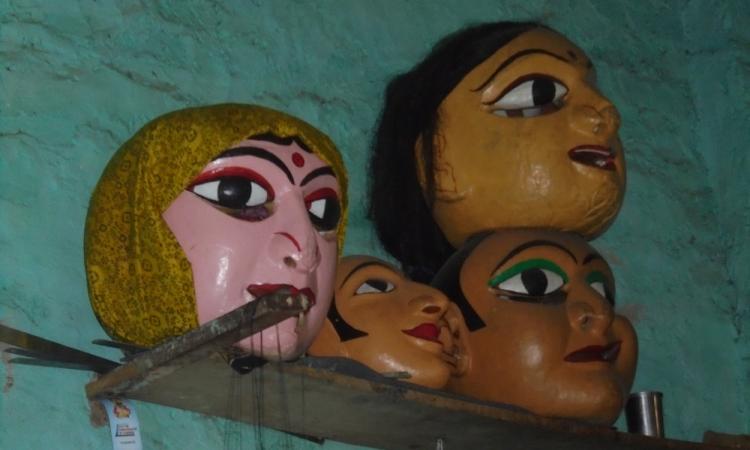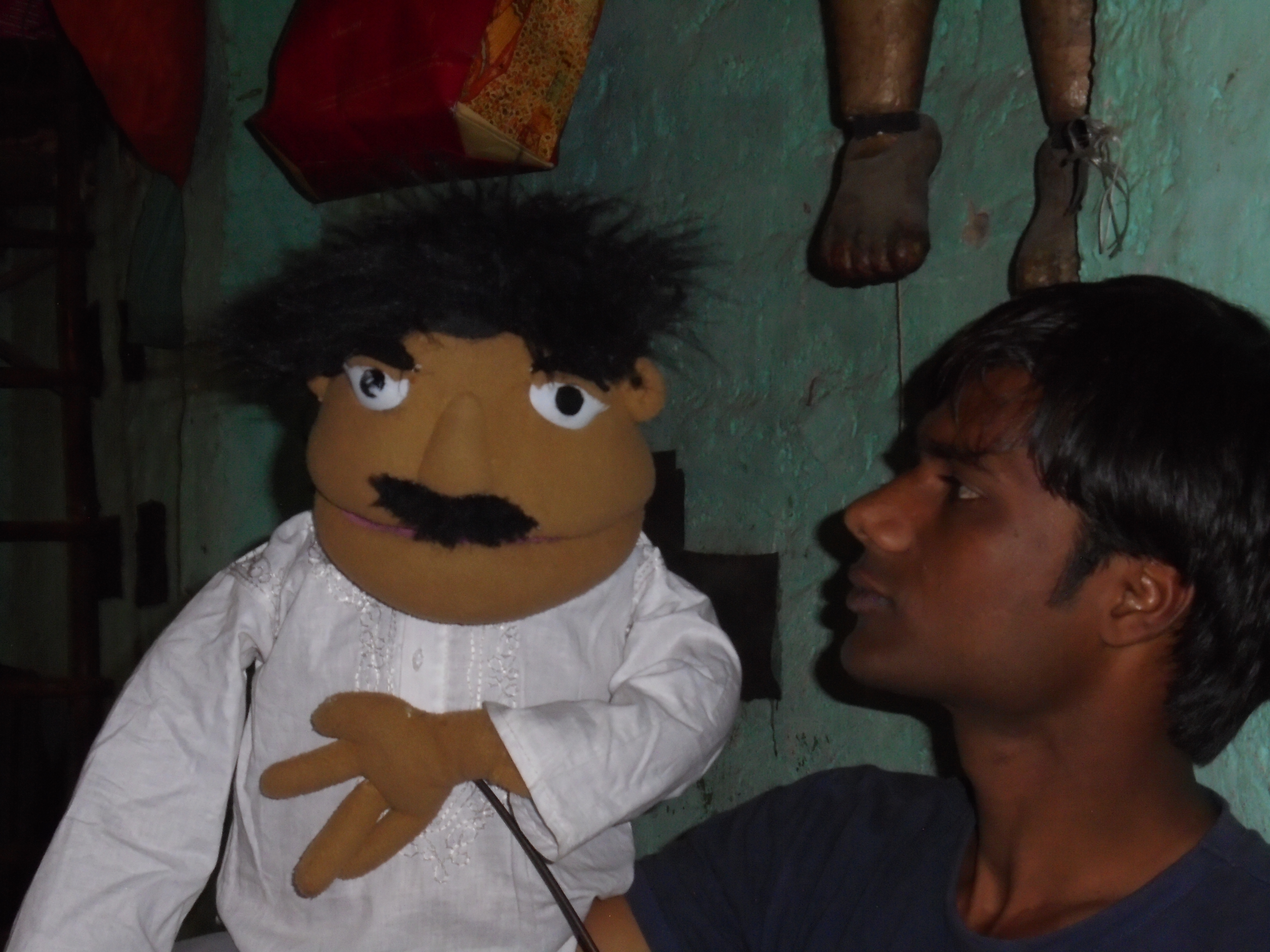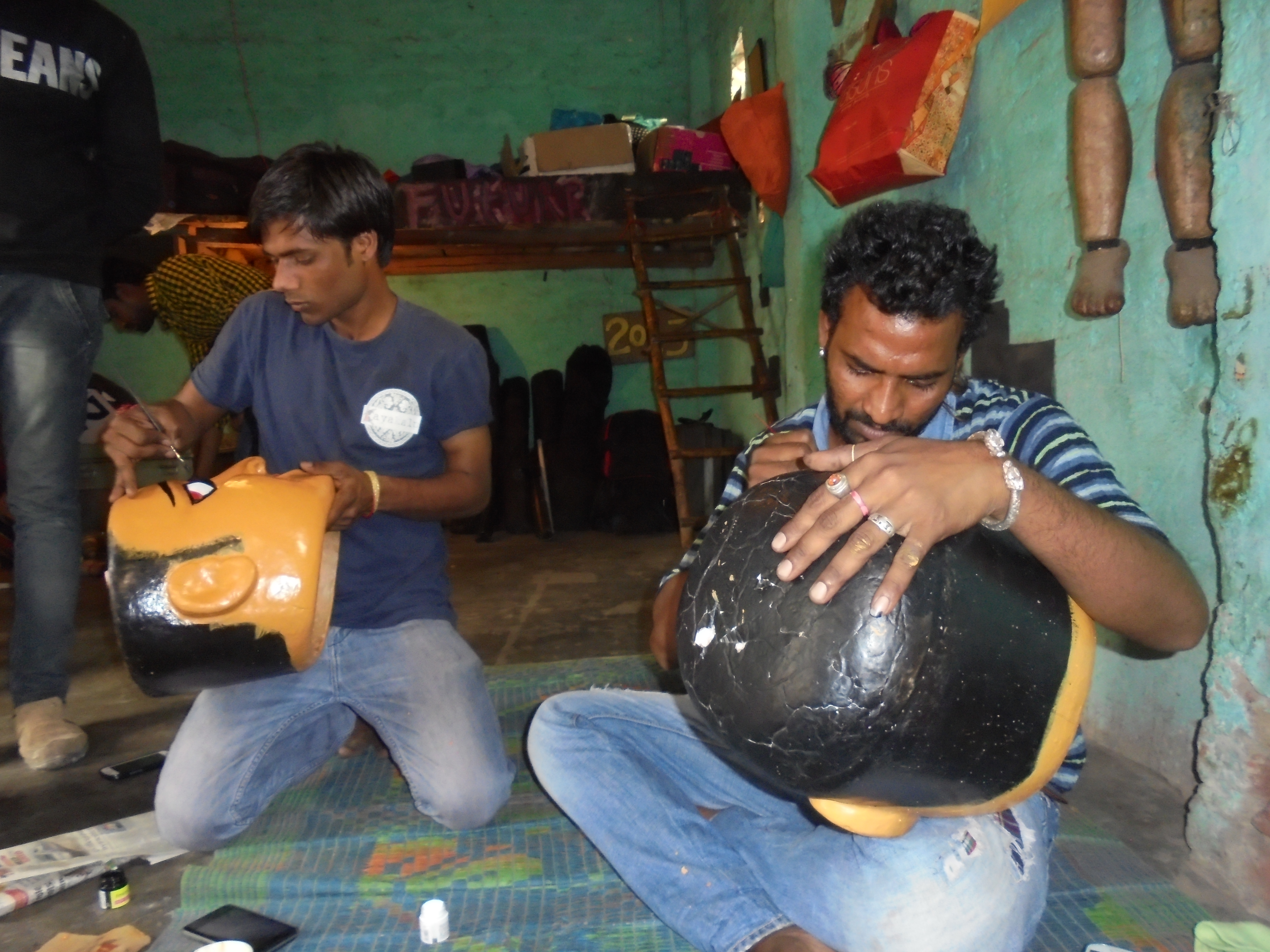
All the world’s a stage and all men and women players in it, said Shakespeare. Kathputli Colony in Delhi is living testimony to this. ‘Kath’ means wood and ‘putli’ is the Hindi word for a doll or puppet. What began as a temporary pitching of makeshifts tents in the early 1940’s by street performers from Rajasthan, has today bloomed into a quaint, quiet settlement. Here folk dancers, jugglers, magicians and acrobats among others share their passion, practice their art, and live in this seemingly magical world but their reality isn't one big magical.
Tight lanes, haphazard houses and open sewers spilling into the pavement is their world. Here, soft songs turn into a cacophony and the closed spaces cramp their free artistic spirits. Added to this are the overflowing drains, sewage cluttered roads and dismal water conditions. Yet, amid their depressing midst, we watch Ravi unruffled, cleanly and smoothly moving his fingers through a motley of strings.
Where puppets talk ‘water’
 Ravi Bhaat is a master performer who makes a crisp, white ‘kurta’ attired man jump to his command. The puppet swings and dances, an exaggerated expression painted on his face, while Ravi mouths his speech in a sing song way. In this make believe world, Ravi’s puppet talks on issues that affect his real life world -- water and sanitation, or the lack thereof. In this colony of nearly 2500 households, there is no drinking water pipeline; people queue up at the few public water standposts to fill their pots and buckets.
Ravi Bhaat is a master performer who makes a crisp, white ‘kurta’ attired man jump to his command. The puppet swings and dances, an exaggerated expression painted on his face, while Ravi mouths his speech in a sing song way. In this make believe world, Ravi’s puppet talks on issues that affect his real life world -- water and sanitation, or the lack thereof. In this colony of nearly 2500 households, there is no drinking water pipeline; people queue up at the few public water standposts to fill their pots and buckets.
And so the little man puppet conveys the story of his times.
No longer are enacted stories only those of brave kings and simpering maidens. Artistes today are carrying forward their legacy and writing scripts that pack a punch. Muppets, paper mache masks or the bunraku puppets all channel their talks on what affects people in the colony today.
Project ‘Kayakalp’, an initiative of ENACTUS, SRCC, has helped them reach a larger audience. They can now carry their socially relevant messages further and also improve the income they generate. What began as a pilot project of 4 people, has scaled upto 14 puppeteers who hold shows and workshops across the country today. Their modern 21st century puppets talk on sanitation, the perils of open defecation and even the good practice of hand washing!
Out of the mouth of puppets
As a part of the 'Swach Bharat' initiative, these puppeteers have put up shows that encourage people to understand water, sanitation and health issues in a more local flavour. Vinod Bhaat dons on his handmade, turban-clad, painted face and with elaborate actions begins a story -- a story of a village where there are no toilets, where young girls fear going out in the open, and children fall easy prey to diarrhea, dysentry and other health issues. Another puppet breaks of into a song for a clean, healthy home and village.
 Puppets to pave way for Delhi’s tallest phoenix
Puppets to pave way for Delhi’s tallest phoenix
Kathputli Colony is the city’s first in-situ slum redevelopment project. As per the Delhi Development Authority’s (DDA) plan conceived in 2007, the colony's residents will be shifted to temporary housing. Raheja, a private developer will construct the huge 54-storey Raheja Phoenix in place of the puppeteers’ colony. "The Ramjas Grounds transit camp where the residents are likely to be resettled lack proper water and sanitation facilities close to the accommodation", says Raju Bhaat, a puppeteer. He also says that the DDA is unlikely to provide them separate water connections.
"This futuristic project would spell doom for the artists who had through decades cohered into a single settlement", says Bhaat. "How can our huge households fit into single-room flats? We would not have enough space to pursue our artistry activities, do rehearsals or even store the puppets", says another puppeteer Vinay Bhaat. "We need more space than just to live. Space for our puppets, space for our drums, space for huge masks that we make. A cramped flat will mean the death of our trade", says Ravi.
Caught between the future and the past, these bravehearts continue to pull strings and hope that when their ‘kathputli’s’ talk, someone will listen.
/articles/puppets-talk-people-listen